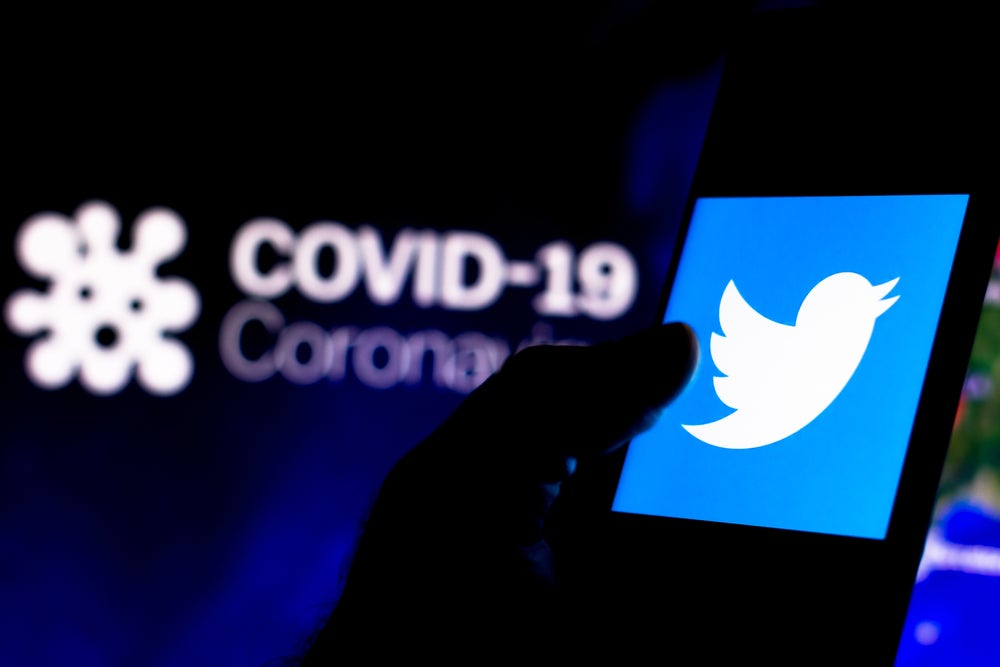
Numerous conspiracy theories about the nature and origin of Covid-19 have circulated on the internet since the pandemic was declared last year, and have only been spurred on by the introduction of numerous speedily developed vaccines. But it’s not just misinformed members of the public peddling false or distorted information online – organised campaigns are actively working to undermine confidence in the Covid-19 vaccine rollout.
In March, the US Government accused Russian intelligence services of conducting disinformation campaigns against western coronavirus vaccines through a number of Kremlin-backed online news publications. According to US officials, the websites exaggerated the vaccines’ risks of side effects and said the Pfizer jab had been rushed through approval, among other false or misleading claims.

Discover B2B Marketing That Performs
Combine business intelligence and editorial excellence to reach engaged professionals across 36 leading media platforms.
An EU foreign service report also accused China and Russia of engaging in ‘state-sponsored disinformation’ campaigns to undermine trust in western-developed Covid-19 vaccines, while promoting their own. Moscow has refuted these claims.
Social media influencers targeted
Media outlets aren’t the only platform being used to sow vaccine disinformation. Just last week, a number of French and German social media influencers said they had been offered large sums of money by a supposedly UK-based PR agency to share false, disparaging claims about the safety of Pfizer’s Covid-19 vaccine. The influencers, which include popular health and science content creators, were asked to tell their followers that the jab was responsible for thousands of deaths and “present the material as [their] own independent view”.
Léo Grasset, a French YouTuber with over one million subscribers, was asked to spread the false claim that deaths from the Pfizer vaccine – the most widely used Covid-19 jab in France – are almost three times higher than those from AstraZeneca’s candidate. Et Ça Se Dit Médecin, a hospital intern with over 87,000 Instagram followers, told French news channel BFMTV he was offered more than €2,000 by the agency to post a story containing similar information.
Grasset said the agency, Fazze, refused to disclose the name of its client and that its employees’ LinkedIn profiles, which have since been removed, showed them all to have previously worked in Russia. The non-profit news platform Radio Free Europe/Radio Liberty has since alleged that a network of Russian marketing companies are behind the campaigns targeting high-profile social media influencers to spread disinformation.

US Tariffs are shifting - will you react or anticipate?
Don’t let policy changes catch you off guard. Stay proactive with real-time data and expert analysis.
By GlobalDataStopping the spread
Analysis by the British Medical Journal has directly linked deliberate ‘foreign disinformation’ campaigns on social media to falling vaccination rates. With the World Health Organisation listing vaccine hesitancy as one of the top ten threats to world health, the spread of false information on far-reaching social media platforms like Twitter and Facebook is a legitimate and urgent cause for concern.
The Virality Project, a coalition of US research entities, was launched in February to detect, analyse and respond to incidents of Covid-19 vaccine disinformation online, and mitigate the harmful effects that misleading content could have on public trust in vaccines. The consortium is building on strategies developed during the US election to inform social media companies and public health officials about disinformation and provide accurate vaccine-related information to the public.
The international non-profit Center for Countering Digital Hate (CCDH) has also conducted extensive research into the online anti-vaccine ecosystem, the way vaccine disinformation thrives online and who benefits from it. Polling commissioned from YouGov by the CCDH last year found that those who used social media to access Covid-related news were less likely to get vaccinated than those who relied more on traditional media.
Big Tech’s responsibility
The work carried out by CCDH has shown that, when it comes to the promotion of false or misleading information about vaccines, Big Tech has a lot to answer for. A report published earlier this year by the non-profit revealed that just 12 individuals and their organisations were responsible for almost two-thirds of all vaccine disinformation posted on Facebook and Twitter. The majority of these remain on major social media platforms despite repeatedly violating their terms of service.
The CCDH’s research has been cited by a US lawmaker and a number of state attorney generals, who have urged Facebook, Twitter, and Google to remove the so-called Disinformation Dozen from the platforms immediately. The EU has also called for social media companies to intensify their factchecking and make alterations to algorithms that could promote anti-vaccine content across the major platforms. The revised code proposed by the European Commission would see companies fined up to 6% of their annual revenue for failing to remove harmful content.
Social media companies have taken some measures to tackle disinformation on their sites since the start of the pandemic. Facebook has said it will remove all posts containing debunked claims about coronavirus and all vaccines, Twitter has placed labels on tweets containing misleading information about Covid-19 vaccines and is removing outright misinformation and YouTube has pledged to ban content containing false claims about Covid-19 vaccines.
For CCDH CEO Imran Ahmed, these measures are insufficient considering the threat vaccine disinformation poses to public health.
“Our research has proven that social media platforms are too slow to take action against disinformation networks with millions of followers, and remove just one in eight posts containing Covid or vaccine misinformation,” he says.
“Now that there is evidence that foreign states are seeking to fund the spread of vaccine disinformation, it is even more urgent for Big Tech to address the dangerous lies spread on their platforms.”




